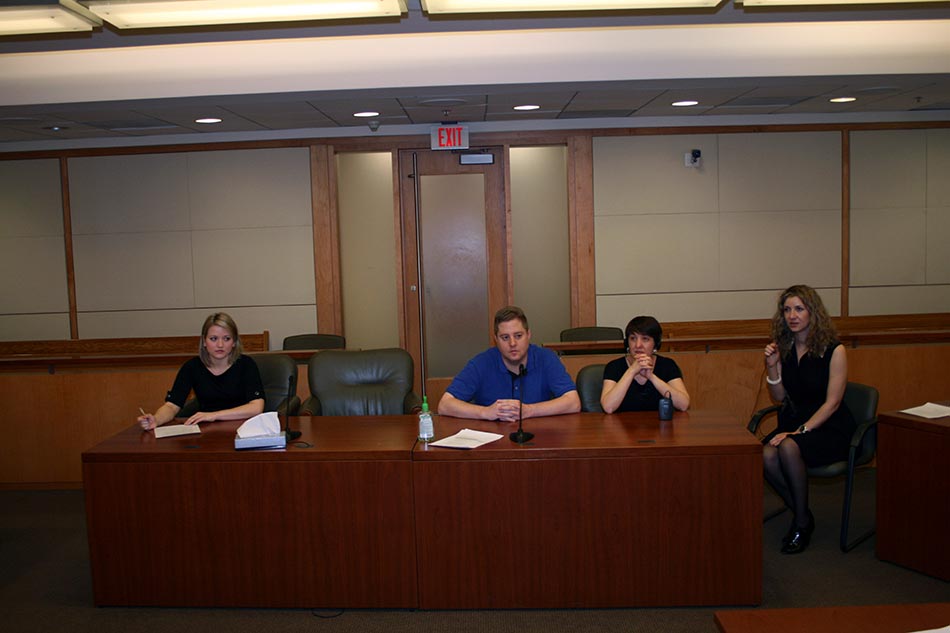IN THIS PHOTO: From left to right - Katherine S., Deputy Public Defender; You would sit in the empty seat between the Deputy Public Defender and a parent or guardian; Parents; Mayela T., Translator
Admission (Change of Plea)
Before accepting any admission (sometimes called a change of plea), the plea needs to be supported by facts. The plea also needs to be voluntary and made knowingly and intelligently and with an understanding of the possible consequences. To be able to make those findings, I will ask the juvenile various questions. Before asking those questions, I state that the juvenile needs to answer my questions with"yes, no, or I don't understand" and that it is important that the juvenile understand my questions. I then will:
- Ask the juvenile's age, last grade of school that the juvenile completed and whether the juvenile reads and writes the English language, to make sure the juvenile can understand the conversation.
- Ask whether the juvenile has taken anything (such as drugs, alcohol or medicine) that would affect the juvenile's ability to admit the charge. I want to make sure that the juvenile is thinking clearly and rationally and can make important life decisions.
- If the juvenile has an attorney, I will ask whether the juvenile discussed the plea with the juvenile's attorney; whether the juvenile asked the attorney any questions the juvenile wanted to ask and whether the attorney has answered those questions to the satisfaction of the juvenile.
- Make sure the juvenile knows that, if the plea is accepted, the juvenile will be giving up the right to a trial, the right to remain silent and other rights.
- Make sure the juvenile knows that, if the plea is accepted, the various consequences I can impose.
- Let the juvenile know that the plea could have immigration consequences.
- Ask if anyone has forced or threatened the juvenile to enter into the plea, or if anyone has made any promises to get the juvenile to enter into the plea.
- If there is a victim, I will ask for the victim's view of the plea.
- I will then have the juvenile and the juvenile's attorney (if the juvenile has an attorney) tell me what the juvenile did so that I know there are facts that support the plea.
If a plea is accepted, a Disposition Hearing will be held where consequences are imposed. A Disposition Hearing sometimes is held at the same hearing when the plea is accepted. More often, however, a Disposition Hearing is held a few weeks later so that additional information can be presented gathered and considered.

